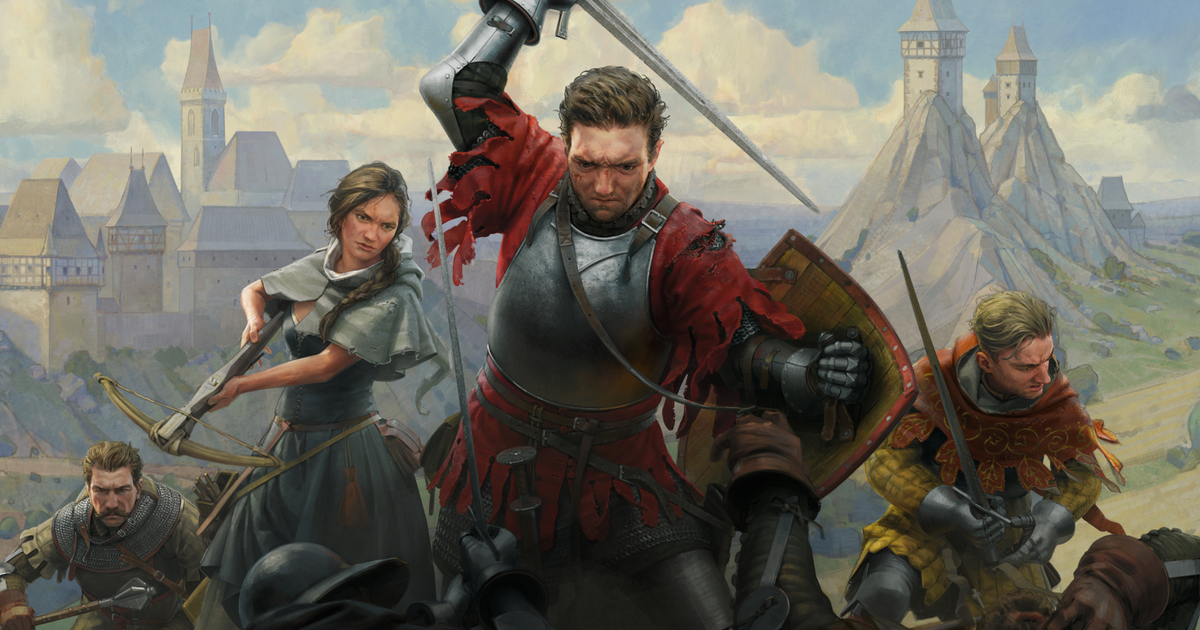Embracer Group has reduced its workforce by over 1800 people in the past year.
The Swedish conglomerate today released its annual report (thanks Game Developer), detailing the internal headcount of each of its departments. By comparing with the previous annual report, we can estimate the workforce reduction over the past financial year.
The company’s PC and console games segment has seen the biggest drop, from 6,404 employees to 4,918. That’s a reduction of 1,486 people, or just over a quarter. The mobile segment has been reduced from 1,081 to 743 employees, while the entertainment and services segment has been reduced from 771 to 738 employees. That totals a loss of 1,857 people in the past year.
This loss does not account for the company’s previous tabletop segment, as Asmodee has now split into a separate entity as part of plans to split the company into three: Coffee Stain Group, Fellowship Entertainment, and Asmodee.
Of course, part of this workforce change will be natural turnover. Embracer lists its turnover rate at 20 percent in total, with 560 people leaving voluntarily and 517 leaving due to dismissal (as opposed to seven by retirement and zero due to death in service).
Much of this will be as a result of Embracer’s restructuring programme, which began back in June 2023 in the wake of a proposed $2bn partnership collapse, reportedly with Saudi Arabia’s Savvy Games fund.
Since then, the company has laid off thousands of employees and closed numerous studios. In May 2024, Eurogamer reported the human cost of this restructuring: a headcount reduction of 4,532 people, as well as 80 in-development projects being dropped.
In the months following that report, the developer of the Alone in the Dark reboot was closed, the Lost Boys studio suffered another round of layoffs, and in March this year Eidos-Montréal confirmed more layoffs affecting up to 75 people.
As part of this year’s annual report, Embracer has focused on its publicly available Sustainability Policy, stating its “commitments towards the people, environment and governance” and highlighting how it addresses working conditions, corporate culture, human rights and labour rights.
“At Embracer Group, we aim to maintain a safe and inclusive workplace where all employees can grow professionally,” the annual report reads. “We focus on developing employee skills and competences and monitor their well-being through performance dialogues at the individual level and other measures. Diversity and inclusion in skillsets and perspectives are key components of the approach taken to create a dynamic and inclusive workplace.”
It adds: “We understand the challenges posed by divestment, transformations and organisational change. Yet, we strive to maintain an environment where talents are nurtured and empowered.”
The report also lists an increased gender imbalance, with a reduction of the female workforce from 30 percent to 27 percent. Embracer states this decrease “is primarily linked to organisational changes, mostly related to the Asmodee spin-off”, though the drop in female managers is larger than the drop in “young female talent”.
The company describes the “diverse skills and perspectives” of its workforce as “a source of pride”. According to GDC’s State of the Games Industry report 2025, women represent 25 percent of the game industry workforce.
Embracer CEO Lars Wingefors has written the opening remarks in the report, although he is stepping down from his role at the company. Instead, he will become its executive chair of the board.
“While the road has not always been straight, I am incredibly proud of the achievements made possible by our talented teams, which have created some incredible experiences for gamers,” said Wingefors.
Despite owning 464 IP rights, Embracer’s biggest success story this year so far has been the release of Kingdom Come: Deliverance 2.
Embracer boasts it has 108 game development projects. So what’s coming next?
In its latest financial report, Embracer stated it would release 76 different games over the next financial year, 2025/2026. This will be a mix of new IPs, sequels, and remasters.
Arguably the biggest release will be Amy Hennig’s Marvel 1943: Rise of Hydra, which was delayed back in May into early 2026.

